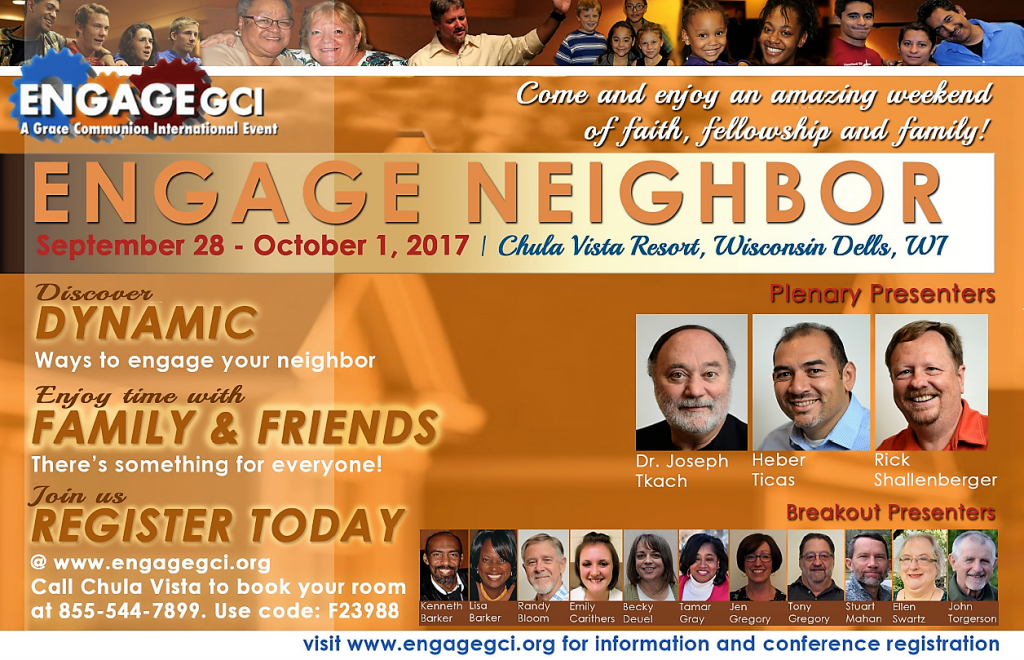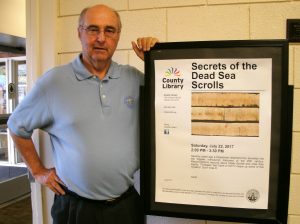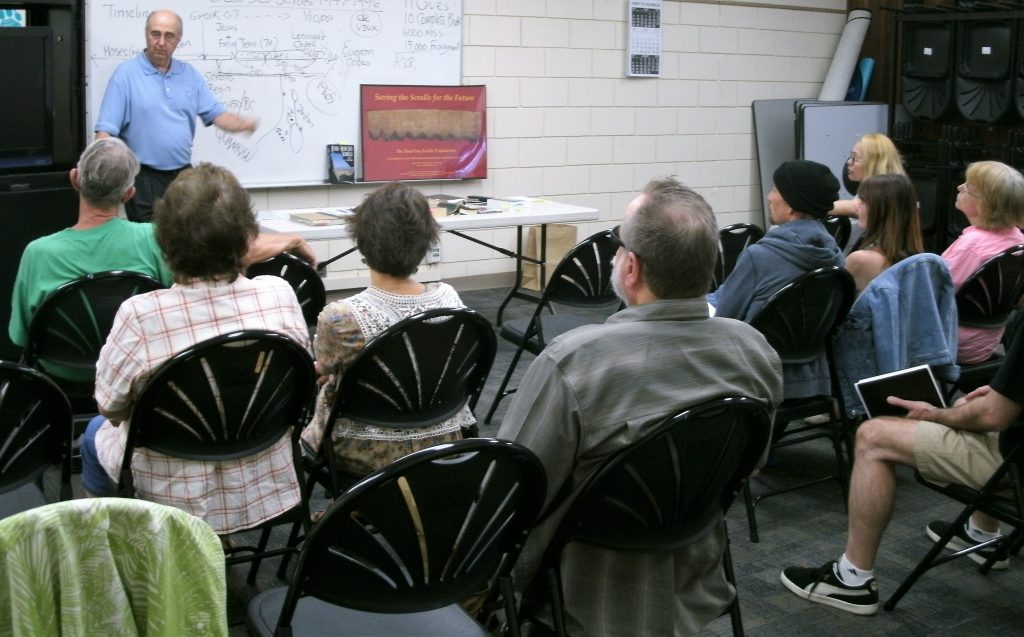You are invited to EngageGCI, a worship event coming this fall to Wisconsin Dells, WI. Christian conference and family retreat rolled into one, EngageGCI focuses on faith, family, friendship and fellowship, with activities for all ages. Workshops and plenary sessions will explore the biblical concept of neighbor: What does it mean to be a neighbor? How can we connect with and care for our neighbors in meaningful ways? For additional information and to register, go to https://www.engagegci.org/.
Month: August 2017
SEP Silver Meadows
In July, the staff of SEP Silver Meadows in Western Canada welcomed 51 campers to a week of sporting, camping and interactive activities, while exploring the theme, The Journey – A Lifelong Adventure with Jesus. Each day after breakfast, the camp band led worship followed by a chapel message from a different speaker each day. The theme song for the camp (played whenever it was time to gather in the main hall) was, “Never Been a Moment,” by Micah Tyler. As the campers explored the journey with Jesus, the refrain from the song came to life: “There’s never been a moment… that I was not loved by you…!” Here’s a video from the camp:
On YouTube at https://youtu.be/TffjHZ9yX2Y.
Camp activities included water skiing, wakeboarding, wall climbing, paintball, archery and a beach day. Campers also enjoyed Scottish Highland games where teams challenged each other in cabre tossing, hammer throwing, kilt racing and haggis eating. They also enjoyed an evening dance with the theme “Origins: Where You Originated,” which aligned with “The Journey” camp theme. The last day of camp began with brunch, followed by a volleyball tournament and the final chapel. An offering was received, which raised over $3,000 to assist other SEP camps in South Africa and Canada. Saturday afternoon was spent on the beach with canoeing, skiing/wakeboarding/tubing, swimming, snacking and just hanging out. The highlight of the afternoon (and camp) was the baptism of two young men who have been long-time camp attendees. That evening there was a graduation ceremony and a closing Praise & Worship session with lots of flag and t-shirt signing.
Philippines update
Here links to reports on recent events in GCI-Philippines:
- GCI Mindanao leaders meet: http://gci.ph/gci-mindanao-leaders-meeting-at-cagayan-de-oro/
- Outreach: helping those who grieve: http://gci.ph/helping-those-who-grieve-using-ehs/
- Outreach: helping fire victims: http://gci.ph/gci-brethren-extends-help-to-fire-victims-at-barangay-old-capitol-site/
Don and Sue Lawson
Please pray for retired GCI pastor and district superintendent Don Lawson and his wife Sue.
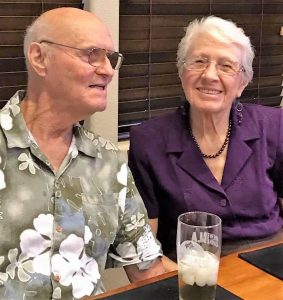
Sue, who is in a nursing home, continues to battle Alzheimer’s disease and Don continues his battle with a blood disorder.
On August 19, Don’s adult children noticed that their father was acting confused. They called an ambulance and it was determined that Don had suffered a minor stroke. After a few days in the hospital, Don was released with doctors saying his prognosis for recovery is good. Though feeling weak, Don has fully recovered his speech.
Cards may be sent to:
Don Lawson
82383 Stradivari
Indio, CA 92203
Hurricane Harvey
Dear Brothers and Sisters,

Hurricane Harvey made landfall in Rockport, Texas, on August 25, devastating many coastal communities. Now a tropical storm, Harvey continues dumping huge amounts of rain (over 50 inches in some areas), with much of Houston under water and other parts of southeastern Texas along with southwestern Louisiana still in harm’s way (click here for an update).
I was deeply saddened to learn of the loss of life and property in Texas. Thankfully, as reported by GCI Regional Pastor Mike Rasmussen, all our members survived, though some sustained property damage as noted in the reports below from two of our pastors in the affected areas.
Some pastors have asked how their congregations can help. As a denomination, we stand ready to assist our affected members through the GCI Disaster Relief Fund. At the end of this letter is an explanation of how congregations can help replenish the fund. There are, of course, thousands of people in the affected communities who are in dire need. I encourage you to help in any way you can. In the days ahead, I’m sure our members in those areas will be looking at ways to help, and we’ll let you know if others can join with them. In the meantime, I know we’ll join together in praying for all who are overwhelmed and especially for those who remain in harm’s way, including emergency workers and volunteers.
—Joseph Tkach
From Pastor Rodney Schuler
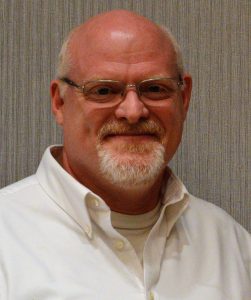
Rodney, who pastors GCI’s congregation in San Antonio, TX, reports that Mary Bell, a 90 year-old GCI member who lives in Rockport, TX, is safe. Though Rockport is where Harvey made landfall, Mary is thanking God that her home suffered only minor damage (some shingles and siding torn off). Mentioning the damage to other homes in her neighborhood, Mary said, “I would never think of complaining!” Though still without power and water, her friends and family are taking care of her.
Rodney also reports that the city of Victoria, TX, was also in Harvey’s path. One GCI member there, Aaron Migl, was awakened around 4 am with a sound “like the roof being taken off with a jack hammer.” The roar lasted almost all day, with branches and shingles flying everywhere. Victoria was badly damaged and is without water, electricity and sewer. Thankfully, our members there are safe and already starting to repair the damage to their homes.
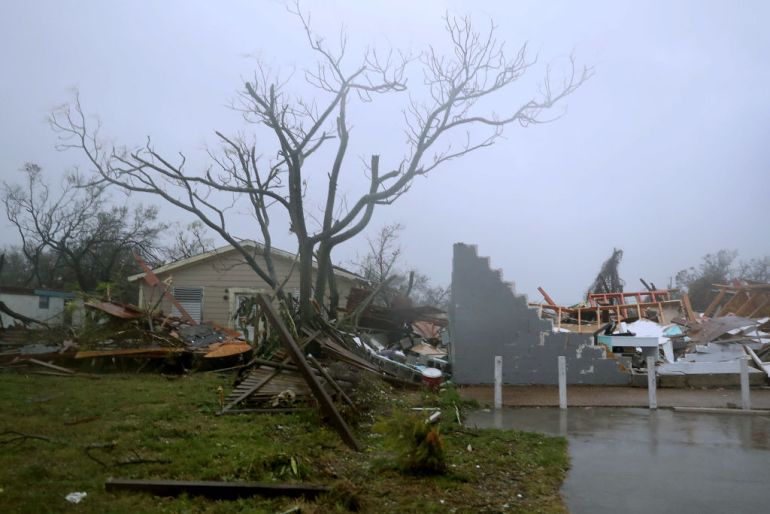
From Pastor Mark Mounts

Mark, who pastors GCI’s congregation in Houston, TX, reports that, so far as he has been able to learn, only one GCI member family in Houston had to evacuate their home due to the terrible flooding. He also reports that one of our elders is in an area hotel, unable to return home for several days. Thankfully she has food and shelter. Such stories are numerous with thousands of people stranded due to the flooding.
According to Mark, during the worst of the storm, it rained in Houston at the rate of 5-9 inches an hour. He commented that in his 20 years living close to the Gulf coast, he has never experienced anything like that. He is thanking God that his own home remains dry, though a levee 15 miles from his home has been breached. According to Mark, though thousands of people in the Houston area are still waiting to be rescued from the flood waters, neighbors are helping neighbors and people all over the country are praying for the people of Houston. As Mark says, “we worship a powerful and loving God, and he is ultimately in charge, no matter what.” Mark thanks everyone for their prayers and says he will keep us updated.

GCI Disaster Relief Fund
The GCI Disaster Relief Fund was established to help provide members in disaster areas with emergency needs such as food, water, medicine, clothing, temporary housing, home and/or church hall repairs, temporary local pastoral salary expenses and other emergency needs. Monies received into the Fund that are not immediately needed will remain in the Fund to be allocated in future disasters. In previous years, money from the Fund was used to help members recover from Hurricane Katrina in New Orleans, storms and flooding in Bangladesh, an earthquake and tsunami in the Solomon Islands, typhoons in the Philippines and an earthquake in Haiti.
If your congregation would like to donate to the Fund, your treasurer can set up a one-time or monthly donation through the GCI-Online system (http://online.gci.org) by logging in and clicking on Donate under the Manage tab.
If your congregation prefers to send a check, make it out to Grace Communion International, indicating on the memo line that the donation is for the GCI Disaster Relief Fund. The donation should be sent to:
GCI Disaster Relief Fund
Grace Communion International
P.O Box 5005
Glendora, California 91740
What should we count?
Reposted below is a helpful Facebook post from Brad Brisco of The Missional Church Network.
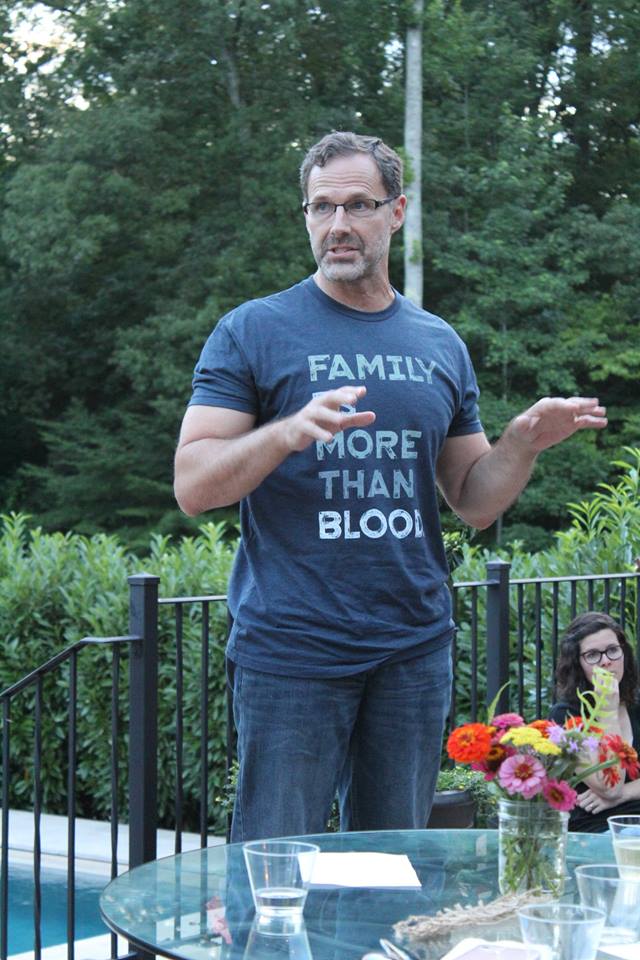
When it comes to “keeping score,” churches in North America have typically focused on three metrics: buildings, budgets and butts. While there is nothing inherently wrong with counting these things, we do need to ask if keeping score of how big our buildings are, how much money people give, and how many people show up when we meet is the best indicator of how a church is doing. The fact is, these three metrics give us little real sense of the influence a church is having on its community. There is absolutely no correlation between the number of people who show up for an event and the difference those people are having where they live. The same is true with how much money people give to the church and how large a church’s buildings are. The reason we “count” those three things is because they are easy to count.
Counting (quantitative) and measuring (qualitative)
While we often use the language of “counting” and “measuring” interchangeably, there is actually a difference between the two. It is important to make the distinction because the church has largely been in the counting business, which has negatively influenced the way we think about the nature of the church and limited our impact in the world. We need to move to measuring more and counting less. Let’s make the distinction this way:
Counting is giving attention to numbers. When counting, the question to be answered is: “How many?” It is quantitative. Conversations about “How many?” are most frequently conversations about resources but can also be about activities. Conversations about resources, in a time of limited resources, are commonly conversations about sufficiency, “Do we have enough?” or, “How can we get more?” Examples could include finances or people. We ask questions like, “Do we have enough money for that mission?” or “Do we have enough volunteers for that ministry?” A quantitative question about activities might be, “How many Bible studies were conducted?”
Measuring is giving attention to change. When measuring, the question is not about “How many?” but rather about “How far?” Conversations about “How far?” are frequently about the change that can be measured over a particular time, as in, “How far have we come over the past year?” Measuring is about qualitative change. Has the quality of something changed over time? In other words, has something gotten better, or worse, since the last time we measured?
I hesitate to be too prescriptive in giving suggestions for what your church could count and measure because contexts are different. But here are a few suggestions that will hopefully crack open your imagination for metrics that fit your community more specifically.
Counting
In light of the fact that the church is a missionary entity—we are the sent, missionary people of God—one of the things we should count are missionary behaviors. For example:
How many neighbors have I gotten to know by name in the past month? How many coworkers have I gotten to know on a deeper level? How many significant conversations have I had in my favorite Third Place? How many people have I had in my home this past month? How many meals have I shared with people outside my church family this week? How many times this week have I intentionally been a blessing to someone?
Not only does counting the right things give us a better indication of a church’s engagement in the community, and ultimately its impact, but it also illustrates to the congregation what is important. The reality is what gets measured gets done and what gets measured gets repeated. When we count the things suggested in the above list, people know what is valued; they, therefore, know the target for which they need to be aiming.
Measuring
While all of the suggestions listed above can certainly help a church begin to move in the right direction, these questions are still activities. They are more about “inputs” rather than “outcomes.” Unfortunately, most often in the non-profit church world, we stop with inputs.
What do we mean by a “measurable” that is outcome-based? First, they are primarily about change. If we can describe the change that we desire to see or make, then we can also have conversations about whether we are moving toward that change over time. Measuring relates not so much to what is, but rather what could be. It is more about possibilities.
Second, the best questions associated with measuring ask both about change and about time. For example, we might ask, “How have the test scores changed over the past six months in the elementary school where the church provides tutors?”
In the context of the church, measuring is about determining transformational change (discipleship) in both people and in the neighborhoods where we live. Ask yourself, “What changes would you like to see in the lives of the people, but also in the life of your community?” That is an outcome. But then ask the follow-up question, “What will it take to get to that place?” Then begin to ask measurement questions toward that change. “How will we know if we are making progress in the right direction?” “What will we measure to determine transformational change?”
Measuring is definitely more difficult than counting, but in almost every case, it is essential if we are serious about making a difference.
Death of Jim Reyer
We were saddened to learn of the recent death of retired GCI pastor Jim Reyer. After spending the evening with several family members, he passed away in his sleep in his favorite chair.
Here is his obituary:

James (Jim) Reyer, of Shepherd, MT, age 85, passed away on August 3, 2017, from complications of a stroke. He was born September 27, 1931 in Fort Wayne, IN, and lived there until 1972. He spent the last 27 years of his life in Montana.
After serving four years in the Navy on a minesweeper during the Korean War, Jim returned to Indiana and became a journeyman electrician, working for the family business, Hambrock Electric. It was in Indiana that he met his first wife, the former Alice Easley, and is where their three children were born. He became a minister in 1965 and pastored WCG churches in California, Ohio, Iowa, Colorado, Montana and Wyoming. Because of these moves, he had numerous friends and impacted people’s lives all across the United States.
Jim had a John Wayne-type persona and enjoyed the life of the west. He and his wife Sondra owned and enjoyed horses, as well as other animals on their small “ranchette.” He was a man of his word, tough yet generous and hospitable, had a great sense of humor and could carry on a conversation with anyone he met. He was a very practical man and could do most of his own home maintenance and remodeling. As a younger man he coached and played sports such as basketball and softball and was a very good athlete. A lover of the outdoors, Jim took advantage of opportunities to camp, hunt and fish. He had a lifelong dream of going to Alaska, which was fulfilled by a fishing trip with his wife, son and daughter-in-law in the mid-1990s. He also loved music and family gatherings where music played a part. He lived life to the full.
Jim was preceded in death by his first wife of 30 years, Alice, a daughter, Rhonda, and brother, William (Bill) Hambrock of Indiana. He is survived by his wife of 29 years, Sondra, daughter Lori (Denny) Sexton, son Dan (Ardys) Reyer, daughter Martie Panarelli, daughter Kellie (Nigel) Bearman, son Rob (Karen) Barrett, son-in-law Gary (Rhonda) Castle, 15 grandchildren, 6 great grandchildren, and sister Judy Furge of Indiana. He also leaves behind nieces, nephews and numerous friends. He will be greatly missed.
Cards may be sent to:
Mr. Daniel L. Reyer
PO Box 309
Shepherd, MT 59079-0309
Dead Sea scrolls lecture in Duarte
On July 22, Grace Communion Seminary (GCS) instructor and retired GCI pastor Neil Earle (pictured at right) gave a lecture at the Duarte Public Library in Southern California on the 70th anniversary of the discovery of the Dead Sea Scrolls in 1947. “The Dead Sea Scrolls evoke mystery and legend,” Neil told the audience. “It’s a fun subject when you start with this young Bedouin goat-herder named Muhammed the Wolf throwing a rock and hearing a clunk and discovering these stone jars that contained copies of the Hebrew Bible transcribed about 150 years before Christ.”
According to Neil, the challenging part was helping the audience see that the Dead Sea Scrolls should be evaluated by the official Jewish Masoretic Text that forms the Old Testament in many of our English Bibles. “It’s almost a case of ‘I’ve told you this story to tell you another one,'” Neil said. The significance of the scrolls is that scholars could now have an earlier Hebrew text than the Masoretic manuscript that makes up the Law, Prophets and Writings that Jesus bore witness to in Luke 24:44.
“It’s in describing the skill of the authorized Jewish scribes that the audience comes alive,” Neil added. “Those Masoretes counted the middle letter of the Torah, of the Hebrew Bible, and of each book and numerous other references as well. William Foxwell Albright, the great scholar of the early 20th century stated that there is no other ancient text that has been so well handed down.” Neil also gave thanks to GCS professor Tim Finlay (who also teaches at Azusa Pacific University) for his help in preparing the lecture. “With a subject this fascinating, you want to make sure you get the finer points right,” said Neil.
Rethinking prayer
Here is a short video with Fuller Theolgical Seminary professor Oliver Crisp discussing ways to think more broadly about prayer.
On YouTube at https://youtu.be/Sx19DLADT70.
Kingdom wine
Dear Brothers and Sisters,

Have you noticed how Jesus makes a party even better? John 2:1-10 tells of the time Jesus saved a wedding party from embarrassment by turning water into the highest quality wine. I’d love to have a taste, agreeing with Martin Luther that “beer is made by men,” but “wine by God.”
Though Scripture doesn’t say which grape Jesus had in mind when turning water into wine at the wedding in Cana of Galilee, perhaps it was the one that comes from the Vitis vinifera vine, which is the source of most of the grapes used to make wine in our day. That vine produces grapes that have thicker skins, larger seeds and typically are sweeter than the table grapes we’re familiar with.

I find it interesting that Jesus’ first public miracle (John 2:11a) was essentially private—accomplished without the knowledge of its main beneficiaries, the wedding party. Nevertheless it was of great importance in that it provided evidence to Jesus’ disciples (John 2:11b) that Jesus truly was the incarnate Son of God sent to save the world. Perhaps that’s why one theologian quipped that “wine is like the incarnation—both divine and human.”
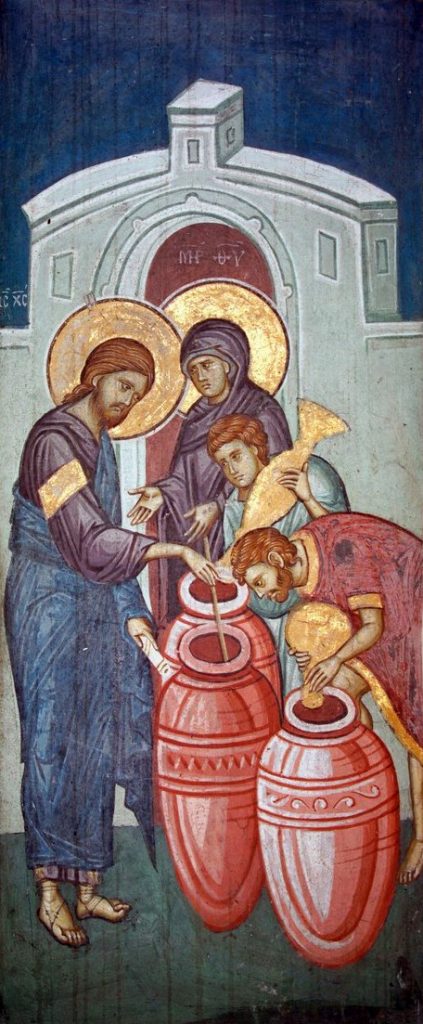
(via Wikimedia Commons)
Though Jesus’ miracle saved the wedding party in Cana from a major social faux pas, it did not address human suffering in the way his many healings and exorcisms did. Nevertheless, turning water into wine strikes me as a good first miracle for Jesus, not because wine is the most healthful and hygienic of beverages (as claimed by Louis Pasteur), but because by turning water into wine, Jesus demonstrated his power over nature. He didn’t just change the water’s flavor, he changed its molecular structure! By doing so he showed both the power and goodness of God.
That the setting for Jesus’ first public miracle was a wedding seems to me to carry great meaning. Perhaps that’s because I’m thinking a lot about my daughter’s upcoming wedding, but most of all it’s because Scripture tells us that those who receive Jesus in faith (the church as one body) enjoy an intimate, eternal relationship with Jesus as his “bride” (Eph. 5:25-27; Rev. 19:7-9). In Scripture, wedding celebrations often serve as metaphors of the messianic age and the fullness of the kingdom. Jesus desires that we not only anticipate that fullness, but that we pursue it. He makes this point in several of his kingdom parables, including this one:
The kingdom of heaven is like a merchant looking for fine pearls. When he found one of great value, he went away and sold everything he had and bought it. (Matt. 13:45-46)
In this parable Jesus shows that the kingdom (and particularly the king of the kingdom) is the most valuable thing we’ll ever possess. The International Standard Bible Encyclopedia states that parables are “almost always formulated to reveal and illustrate the kingdom of God” (vol. 3, p. 656). In Parables of the Kingdom, C.H. Dodd adds that a parable is “a metaphor or simile drawn from nature or common life, arresting the hearer by its vividness or strangeness, and leaving the mind in sufficient doubt about its precise application to tease it into active thought” (p. 16). Though not parables per se, many of Jesus’ miracles were kingdom-focused. In turning water into wine, he made a point similar to the one he was making in some of his kingdom parables, likening entrance into the kingdom to attending a great banquet.
In John 2:11 we’re told that the miracle of turning water into wine was a “sign” by which Jesus “revealed his glory.” But in what way? In healing people, Jesus revealed his authority to forgive sin. In cursing the fig tree, he showed that judgment was coming upon the temple. In healing on the Sabbath, Jesus revealed his authority over the Sabbath. In raising people from the dead, he revealed that he is the resurrection and the life. By feeding thousands, he revealed that he is the bread of life. And by miraculously providing abundant blessings for a wedding banquet in Cana, Jesus seems to have been revealing that he is the one who provides the abundant kingdom blessings of God that contribute to joy and life, both now and in the fullness of the kingdom. The miracle at Cana thus fills out for us a little more of Jesus’ true purpose and character. When I contemplate that miracle, I can’t help but consider how Jesus is transforming us into something far more glorious than what we would be apart from his miraculous work in our lives.
Jesus’ miracle at Cana often comes to mind when I’m enjoying a glass of fine wine. By saying that, I’m not advocating the abuse of alcohol in any way. As Paul would say, “God forbid!” The Bible frequently warns against such abuse (Gal. 5:21) and Jesus forbids drunkenness (Luke 21:34). That being said, reading of Jesus’ miracle at Cana helps me live and work in a way that points toward the coming fullness of the kingdom of God when Jesus will have removed all the residue of sin and we will sit down with him at the greatest family reunion banquet of all time. Perhaps Jesus will provide some of that wine from Cana! It will surely “gladden” our hearts (Ps. 104:14-15).
Raising my glass in a toast to the kingdom,
Joseph Tkach


